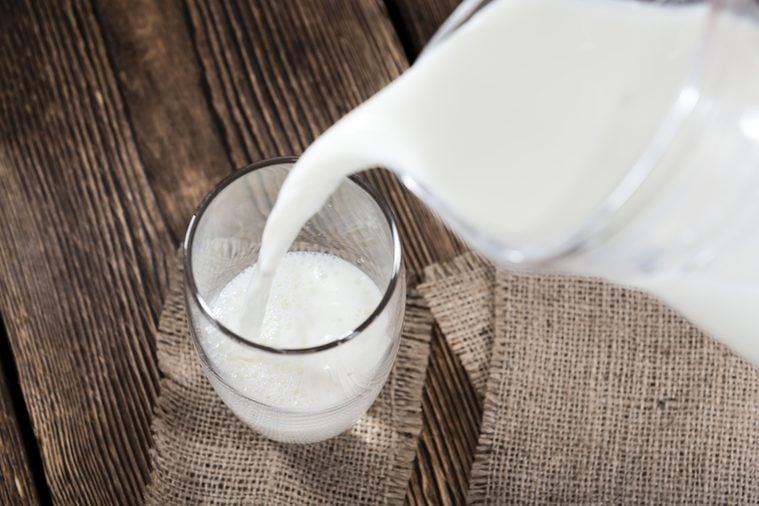
How much is in a glass of milk
Getting your daily dose of calcium isn’t just important when you’re young. Calcium helps with muscle function, works to regulate your heartbeat and nerve signals, and aids in preventing blood clots and osteoporosis, all of which are very important as an adult. There are 305 milligrams of calcium in one cup of milk; the average adult should be getting about 1,000 milligrams of calcium per day. Try adding these foods to your diet to meet your daily numbers.
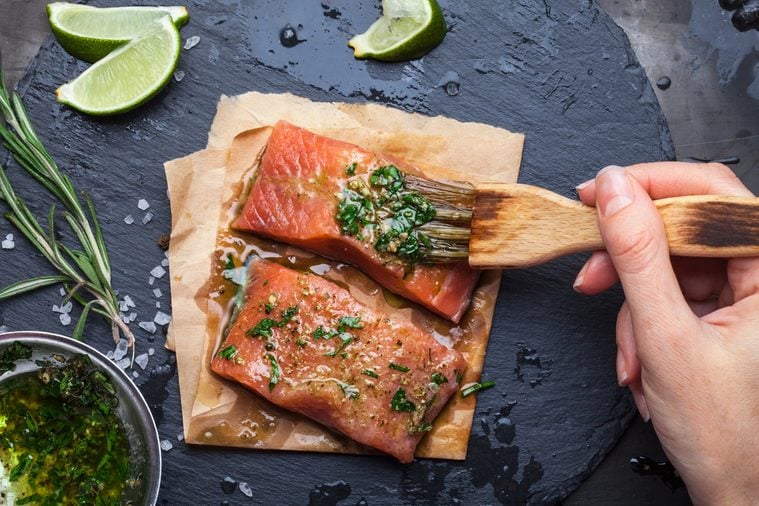
Salmon
Fresh salmon and canned salmon both have more calcium than you would expect. A six-ounce serving of fresh salmon has about 340 milligrams of calcium. If you want even more calcium, go for canned salmon since a five-ounce serving has 350 milligrams. (Here’s what you should know about buying farm-raised vs. wild-caught salmon.)
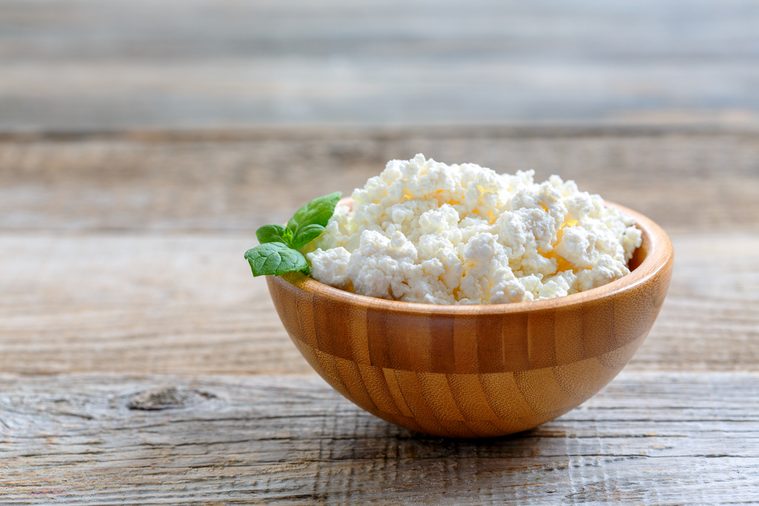
Ricotta cheese
Three-quarters of a cup of ricotta cheese contains 380 milligrams of calcium. For a healthy snack, add fruit to ricotta cheese to get your daily dose of calcium and fiber. Did you know these foods can help heal broken bones?
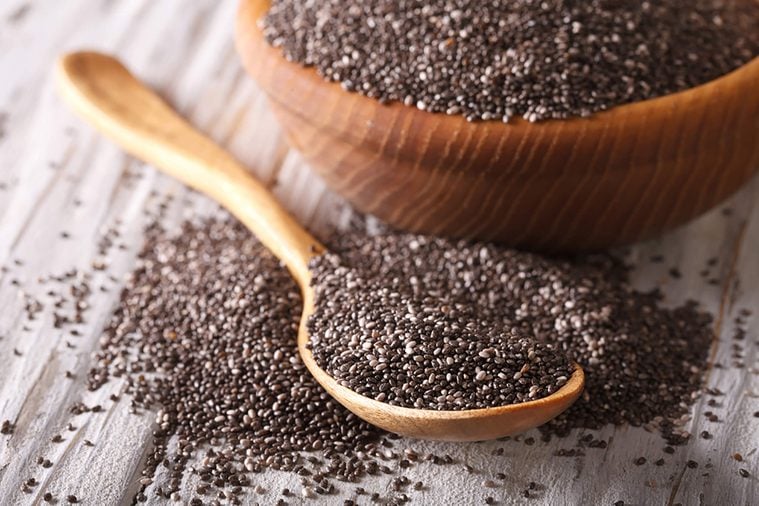
Chia seeds
These tiny seeds contain a lot of calcium. One hundred grams of chia seeds contain 631 milligrams of calcium. That means about three tablespoons will get you more calcium than a glass of milk. Add them to your smoothie or yogurt! These calcium-rich foods are also great fat burners.
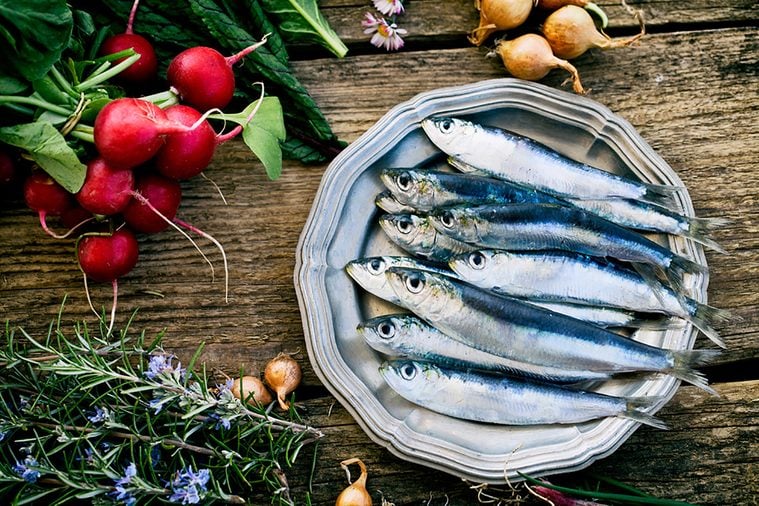
Sardines
Eating a three-ounce serving of sardines will give you 370 milligrams of calcium. Also, since it’s fish, it’s a great source of omega-3 fatty acids and vitamin D.
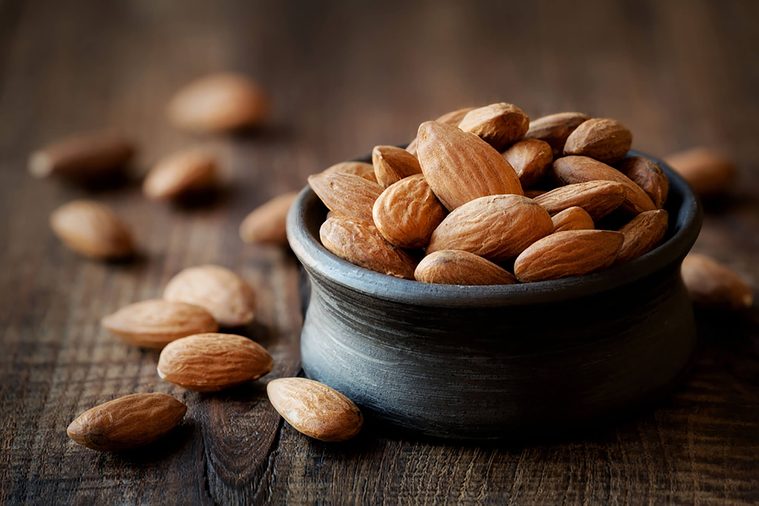
Almonds
Almonds have a ton of benefits; one of their major ones is being a great source of calcium. A three-quarter cup of almonds has about 320 milligrams of calcium. If you can’t drink dairy, you’ll want to know the nutritional benefits of almond milk.
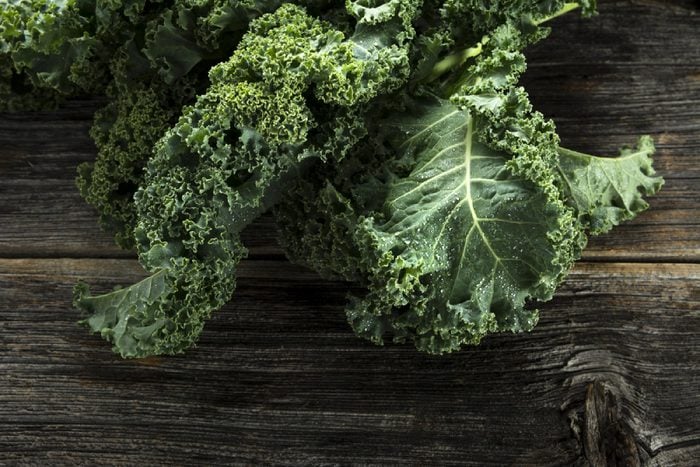
Leafy greens
Leafy greens are a great source of calcium, especially dark greens like spinach, mustard leaves, bok choy, turnip greens, and kale. Two cups of turnip greens contain about 394 milligrams of calcium, and two cups of kale contain 188 milligrams. If you don’t like eating these dark leafy greens in your salad, try mixing them into a smoothie or adding them to a sandwich.
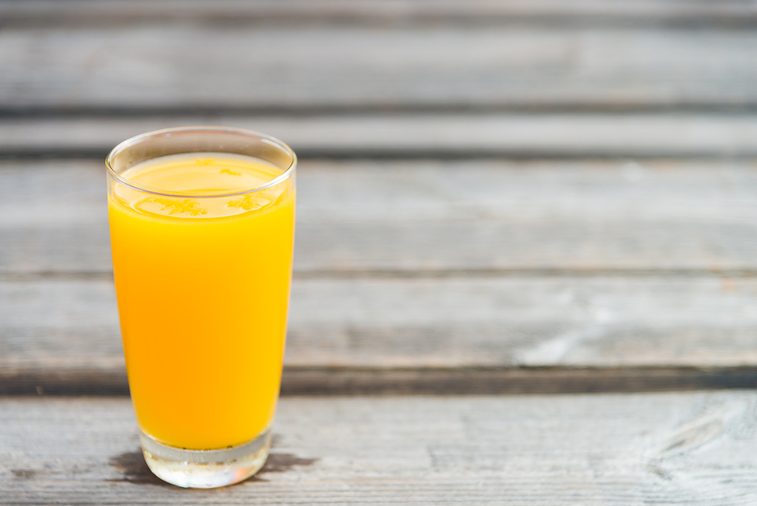
Citrus juice
An 8-ounce glass of calcium-fortified orange juice contains 350 milligrams of calcium, a perfect way to get in your daily goal with breakfast. Make sure to shake the juice before you drink it as sometimes the calcium can settle at the bottom. Watch out for these signs you’re not getting enough calcium.
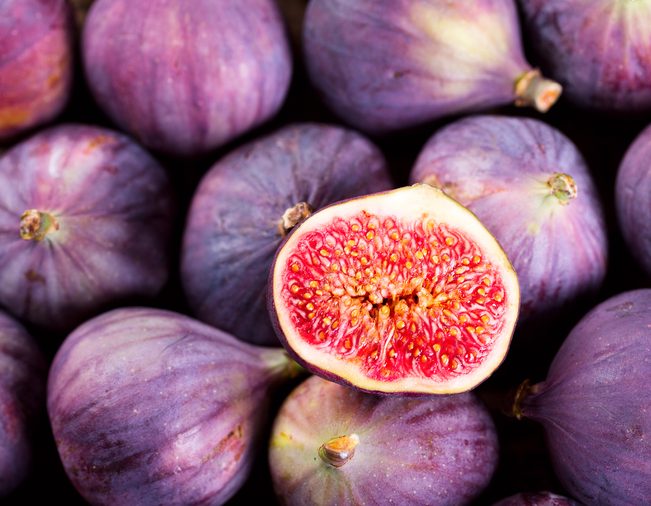
Dried figs
If you want a sweet way to get your daily dose of calcium, eat dried figs. One and a half cups of dried figs contain 320 milligrams of calcium. But remember, they’re also high in calories, so don’t get carried away.
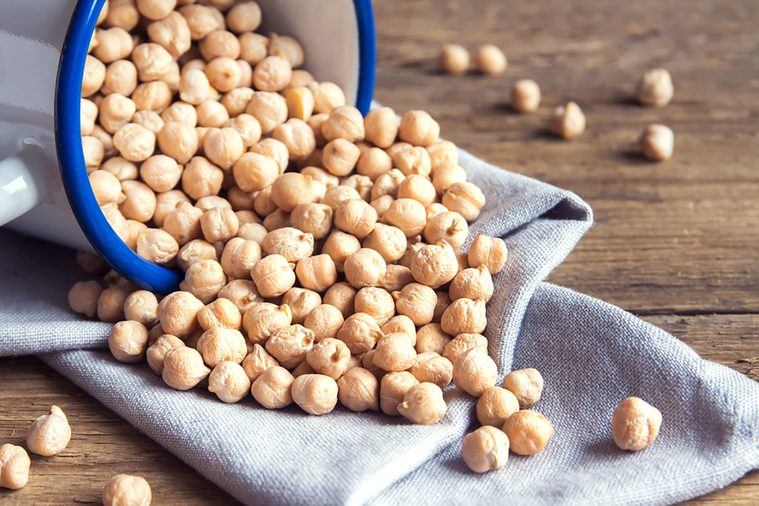
Chickpeas
One and a half cup of chickpeas contains 350 milligrams of calcium. Try eating them with some lime, roasting them, or cooking them into a soup.
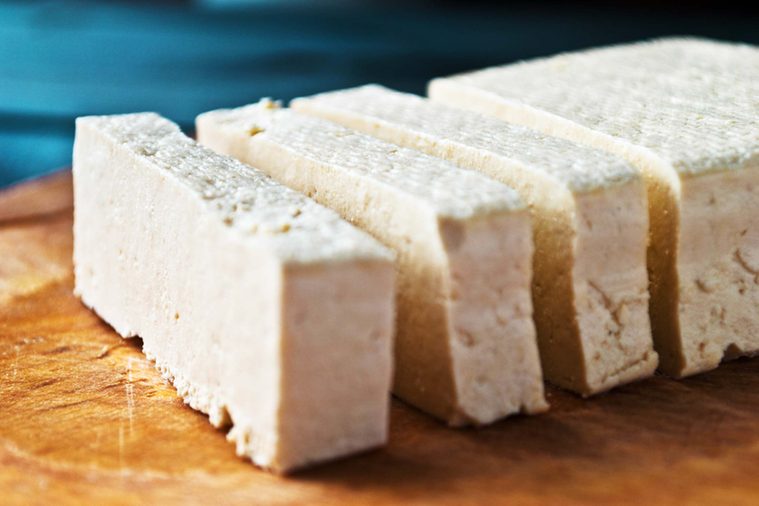
Tofu
One cup of tofu will give you a whopping 861 milligrams of calcium. Cook it up with some vegetables for the ultimate healthy lunch or dinner.
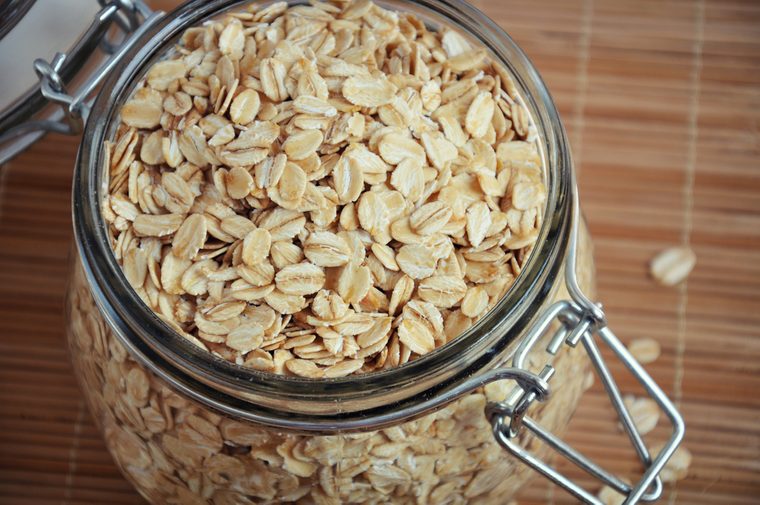
Oatmeal
A half-cup of dry, plain oats contains about 200 milligrams of calcium. To load up on even more calcium, cook it with a cup of almond milk—it will add an additional 300 to 400 milligrams.
